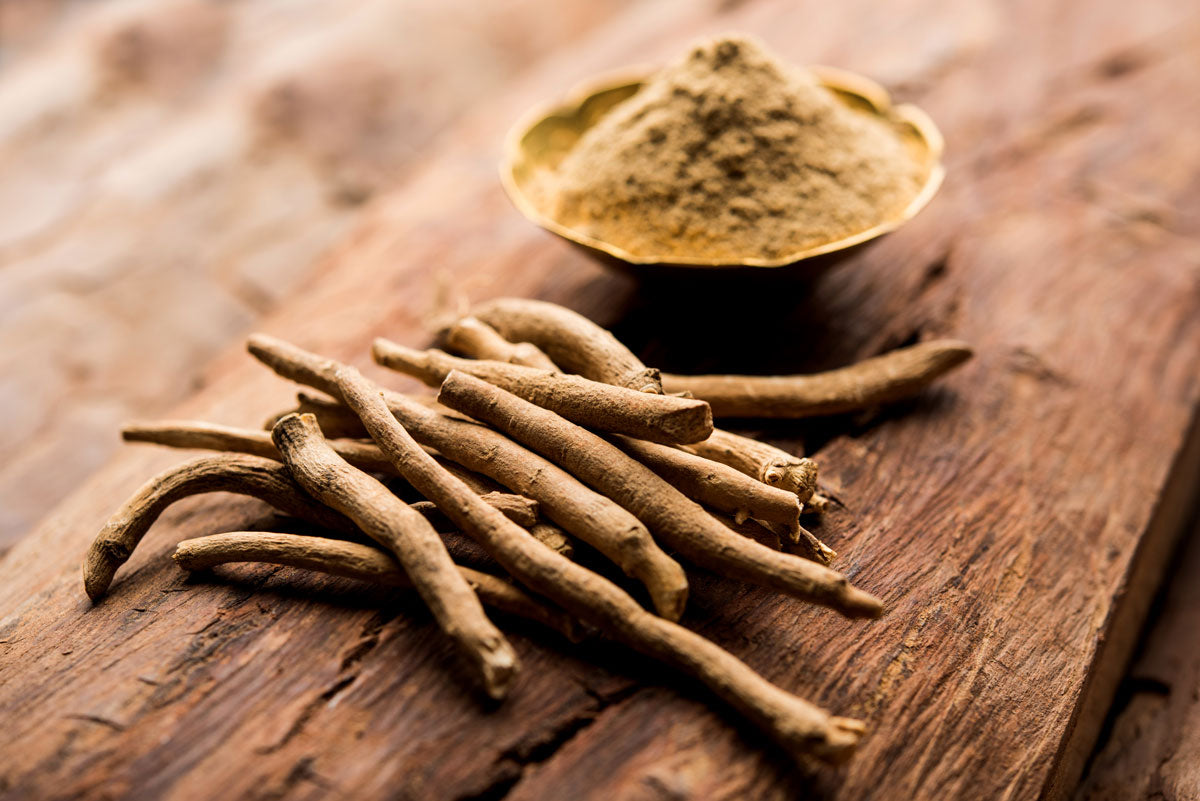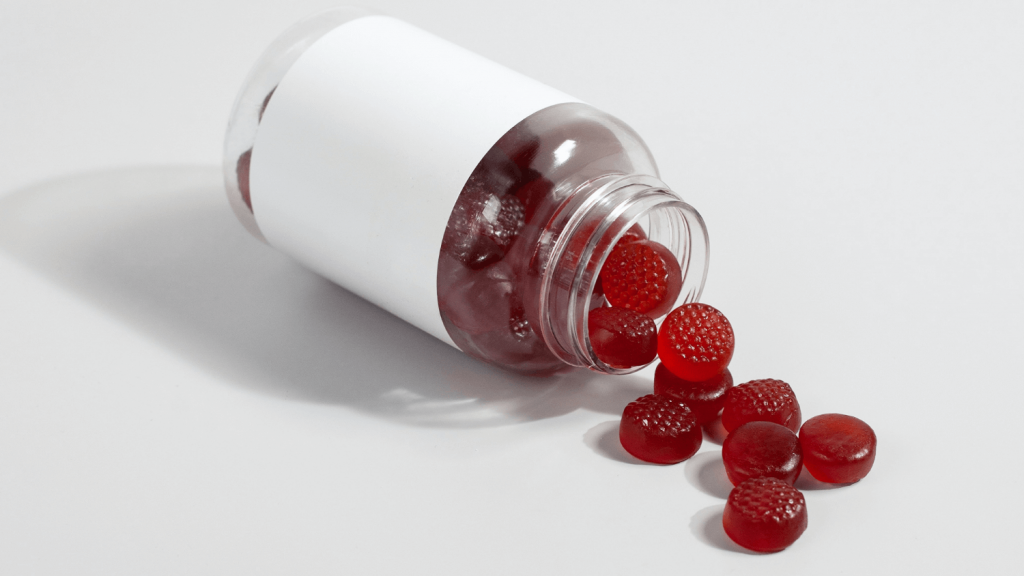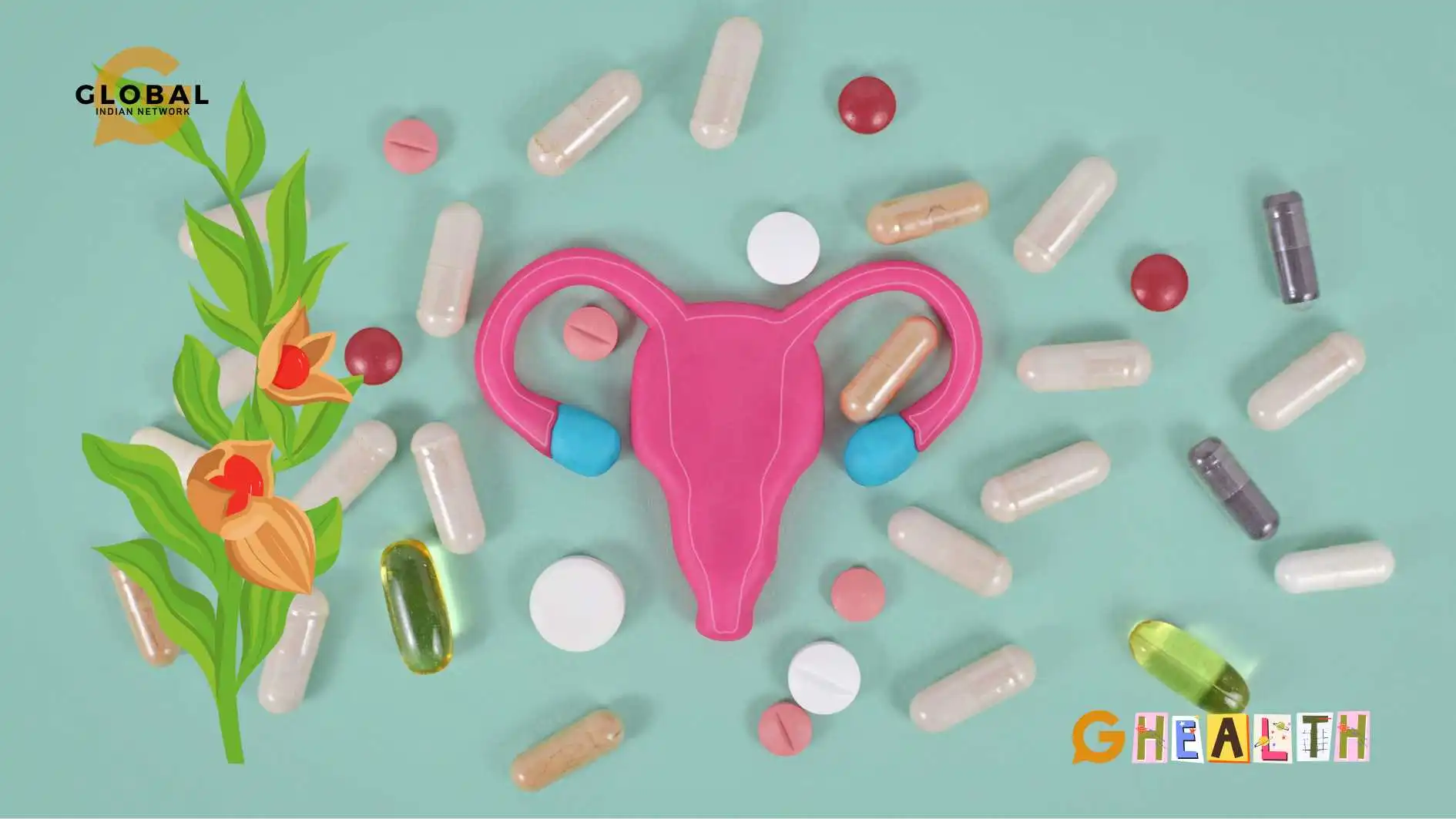Ashwagandha is an ancient Indian ayurvedic herb commonly referred to as Indian ginseng or Withania somnifera.
With a long history of three thousand years in Ayurvedic medicine, this adaptogenic medicinal herb is present in almost every Indian household.
However, it has recently started gaining significant global attention due to its potential to contribute to reproductivity.
How to use Ashwagandha for female fertility is a question on many minds.
Want to know how to use Ashwagandha for female fertility?
Use this blog as a guide to learning about the science behind this magical, potent herb and how to incorporate it into your wellness routine for reproductive health.

Table of Contents
What is Ashwagandha?

Ashwagandha is the most popular herb in Ayurveda and is based on the Indian principles of natural healing.
Coming from the Sanskrit language, Ashwagandha means “smell of the horse”, which implies both the herb scent and its wonderful ability to boost strength.
The ashwagandha plant is a small shrub with delicate yellow flowers that grows in India and other parts of Southeast Asia.
The ashwagandha root extract is used and consumed in various forms for several issues, such as easing symptoms of mental illnesses and enhancing cognitive functions and fertility.
Ashwagandha is as old as Ayurveda itself which is roughly 5,000 years old.
Besides Ayurveda, it has been used in several other traditional medicine systems, such as homoeopathy, Unani, Siddha, etc.
Additionally, Ashwagandha also reached the Chinese medicine system, which was impressed with this medicinal plant’s health benefits years ago.

Benefits of Ashwagandha for Female Fertility

Since it is part of the adaptogen family of herbs, Ashwagandha is a popular herbal remedy for a wide range of mental and physical issues.
While it cannot be considered a stimulant, it has a strong tonic effect.
Here are its top potential benefits for women:
Easier Menstrual Cycle and PMS
The efficacy of Ashwagandha in improving sexual function, such as enhanced fertility, is responsible for its recent drastic popularity.
With its modulation of gonadotropin and other reproductive hormones, it plays a crucial role in managing irregular periods. Additionally, it can also significantly minimize PMS symptoms such as fatigue, cramping, mood swings, and disrupted sleep.
Minimizing PCOS Symptoms
PCOS is a very common hormonal condition that affects fertile women and often causes ovarian cysts, period disruptions, and heightened testosterone production.
Ashwagandha has the magical ability to relieve some related symptoms of PCOS and bring about easier and healthier menstrual cycles by balancing reproductive hormones.
Encouraging Conception

Ashwagandha can be extremely beneficial in encouraging conception by regulating hormonal imbalances and oxidative stress, improving ovarian health, and reducing inflammation.
It does wonders, especially for ovarian function, by fostering healthy follicle formation and regulating FSH, LH, and estrogen.
Easing Menopausal Symptoms
Menopause brings about a massive disruption in a woman’s hormones, causing significant damage to their wellbeing.
Ashwagandha plays a crucial role in minimizing menopausal symptoms by reducing hot flashes, increasing bone health and improving mood and sleep quality.
Ashwagandha for Mental Wellbeing
As per scientific evidence, Ashwagandhas adaptogenic properties are believed to be able to regulate cortisol levels (stress hormones) and reduce chronic stress, anxiety, depression, bipolar disorder, and other mental illnesses by contributing to hormonal balance within the body.
Besides helping women have control over their mental health in their reproductive journey, this feature is beneficial for overall mental health and quality of life.
How to Use Ashwagandha for Female Fertility?
With so much talk about its benefits and origins, you’re probably wondering – how to use Ashwagandha for female fertility?
The best way is to begin with a small dose and increase it gradually. Some women prefer taking Ashwagandha in the morning to reap its energy-giving benefits, while others like it at nighttime for its relaxing effect.
You can combine it with other fertility-enriching supplements such as vitamin D, folic acid, and omega-3 fatty acids.
Types of Ashwagandha Products: Which One to Choose?
Ashwagandha is available in numerous forms. These are the most common types:

Tablets and Capsules: The benefit of Ashwagandha capsules is that they have an exact dosage.

Powders: Ashwagandha powders are especially convenient for those who struggle with swallowing pills. They can be added to various beverages, such as smoothies and water.

Gummies: Gummies are suitable for those who wish to consume their health supplements in a tasty and creative way.
Potential Side Effects
While the safety of Ashwagandha is generally high since it is a natural herb, it may have some potential side effects.
This could include disturbed digestion, insomnia or dizziness. It can also interact with certain medications, such as thyroid medications and specific sedatives.
It is always important to consult your healthcare provider before starting Ashwagandha for fertility.
Additionally, you can also maintain a journal tracking your progress and any side effects of Ashwagandha you are experiencing. This will help you develop your customized plan on how to use Ashwagandha for female fertility.
Bringing Ashwagandha into Your Daily Routine

Incorporating Ashwagandha into your daily life can have several valuable benefits for your overall mental and physical health besides fertility.
Keep the following tips before you do so:
- Consult your healthcare provider.
- Choose the best ashwagandha supplement that is suited to your needs.
- Follow the correct dosage.
- Be consistent with your intake.
RELATED:
- Fighting Fertility Fraud and Advocating for Change with Eve Wiley
- States with Fertility Fraud Laws in the US| A Step in the Right Direction
- Clear Up Confusion: The Key Differences Between Sterility and Infertility
- The Surprising Truth: Hyperspermia and Infertility – A Complex Relationship
- Crucial Signs of Poor Egg Quality | Don’t Risk Your Fertility
- Remarkable Men’s Fertility Vitamins To Overcome Infertility Struggles
Conclusion
How to use Ashwagandha for female fertility has been a common question for everyone, with rising evidence of it being a promising, natural supplement to support reproductive health.
Understanding its scientific basis and combining it with other treatments is an easy path to helping your body reach its full health potential.
Nevertheless, while Ashwagandha is a safe and completely natural herbal supplement, it is essential to consult with your healthcare provider so that they can offer you personalized guidance on Ashwagandha supplementation.

FAQs
How many days will it take for Ashwagandha to start working?
While it depends on your personal health situation, Ashwagandha typically takes 4 to 8 weeks to start working.
When is the best time to take Ashwagandha?
With its rising popularity, many people wonder how to use Ashwagandha for female fertility. Some women prefer taking it in the morning to reap its energy-giving benefits, while others like it at nighttime for its relaxing effect.
Can I drink ashwagandha powder with water?
Ashwagandha can be consumed in various beverages, such as water, juice, or smoothies.









